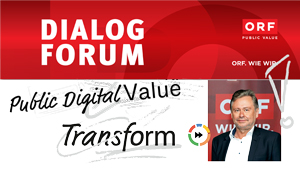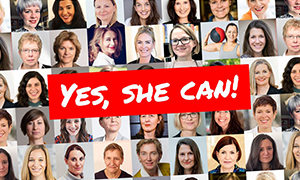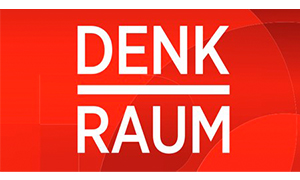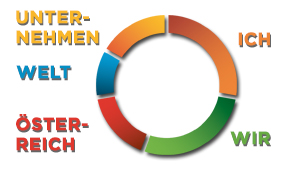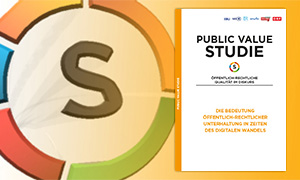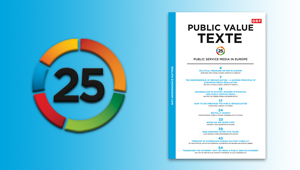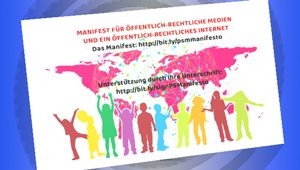 UPDATE vom 01.10.2021:
UPDATE vom 01.10.2021:
Die Initiative "Public Service Internet Manifesto" wurde weltweit von über 1000 Unterstützer*innen, darunter
Jürgen Habermas und
Noam Chomsky unterzeichnet. Wenn auch Sie die Initiative für ein öffentlich-rechtliches Internet unterstützen möchten, dann können Sie das Manifest hier unterschreiben:
http://bit.ly/signPSManifesto
___________________________________________________________
200 internationale Medienexpert:innen haben am Donnerstag, den 17.6.2021 einen alarmierenden Weckruf an die Medienpolitik veröffentlicht und fordern ein Public Service Internet.
"Die euphorischen Erwartungen an das Internet sind zerstört. Tatsache ist: Die dominierenden kommerziellen digitalen Plattformen gefährden die Demokratie. Trotz der faszinierenden Möglichkeiten, die das Internet der Gesellschaft und den einzelnen Mediennutzer:innen bietet, haben einige wenige global agierende Datenkonzerne eine beispiellose wirtschaftliche, politische und kulturelle Macht erlangt. So wie das Internet derzeit strukturiert und genützt wird, trennt und spaltet es, anstatt vertrauenswürdige, öffentliche Räume für die Kommunikation über Unterschiede, Vielfalt und Meinungsverschiedenheiten zu schaffen" (Auszug aus: "The Public Service Media and Public Service Internet Manifesto").
Eine internationale Gruppe von Medienexpert:innen hat daher ein Medien- und Internetmanifest erstellt. Das heute veröffentlichte "Public Service Media and Public Service Internet Manifest" fordert die Sicherung der Existenz, der Unabhängigkeit und Finanzierung von öffentlich-rechtlichen Medien sowie die Schaffung eines Public Service Internet.
Prof. Christian Fuchs, Direktor des Instituts für Kommunikations- und Medienforschung an der University of Westminster in London und Mitinitiator des Manifests:
"Die Demokratie braucht öffentlich-rechtliche Medien und ein Public Service Internet. Die digitalen Giganten wie Facebook, YouTube/Google, Netflix und Amazon dominieren das Internet. Die Folgen sind Monopole, Datenüberwachung, algorithmische Politik, digitaler Populismus, das Internet als riesiges Einkaufszentrum, Filterblasen, Fake News, eine postfaktische Kultur und ein Mangel an vielfältiger Debatte. Unser Manifest fordert die Schaffung eines Public Service Internets, damit öffentlich-rechtliche Medien in die Lage versetzt und mit angemessenen Mitteln ausgestattet werden, um Online-Plattformen bereitzustellen, die einen gemeinwohlorientieren digitalen Auftrag haben, Informationen, Nachrichten, Debatten, Demokratie, Bildung, Unterhaltung, Partizipation und Kreativität mit Hilfe des Internets zu fördern."
Das Manifest wurde von einer Gruppe internationaler Medienexpert:innen in einem mehrmonatigen Online-Diskussions- und Kooperationsprozess auf der österreichischen Plattform ecomitee.com erstellt. Die Manifest-Initiative ist Teil des Forschungsnetzwerks "InnoPSM: Innovation in Public Service Media Policies", das vom UK Arts and Humanities Council finanziert wurde und von Dr. Alessandro D'Arma von der University of Westminster und Dr. Minna Horowitz von der University of Helsinki geleitet wird.
Dr. Klaus Unterberger, Leiter der Public Value - Abteilung des ORF und Mitinitiator des Manifests:
"Öffentliche Kommunikation ist mehr als ein Geschäftsmodell. Sie ist eine öffentliche Aufgabe. Die globale Pandemie, der sich beschleunigende Klimawandel und die zunehmende soziale Ungleichheit haben die Dringlichkeit von verlässlichen und vertrauenswürdigen Informationen jenseits von Fake News und Polarisierung gezeigt. Wir brauchen ein neues Internet, das eine öffentliche Sphäre für Menschen bietet, die nicht nur Medienkonsument:innen, sondern in erster Linie Bürger:innen sind. Die bestehende Infrastruktur der öffentlich-rechtlichen Medien muss dabei eine wichtige Rolle spielen, um eine Alternative zur drohenden Dominanz der Datenkonzerne in der öffentlichen Kommunikation zu schaffen. Ein neues, demokratisches Internet ist möglich. Deshalb rufen wir zum Handeln auf."
In den folgenden Monaten wird das Manifest weltweit verbreitet und Unterstützer:innen werden gebeten, es zu unterzeichnen. Angekündigt sind Aktivitäten und Veranstaltungen, die sich an die Medienpolitik, an die öffentlich-rechtlichen Medien, an die Zivilgesellschaft und an die Öffentlichkeit richten, um eine breite Koalition für die Schaffung eines Public Service Internets zu bilden.
Das Public Service Media und Public Service Internet Manifest im Wortlaut (in Englisch):
http://bit.ly/psmmanifesto
Public Service Internet Manifesto (Deutsch): Download
Das Manifest kann hier unterzeichnet werden:
http://bit.ly/signPSManifesto
Rückfragen:
Prof Christian Fuchs,
University of Westminster,
Communication and Media Research Institute
c.fuchs@westminster.ac.uk
Klaus Unterberger, klaus.unterberger@orf.at


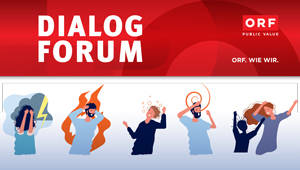 Die sozialen Folgen der Pandemie haben ebenso wie der Krieg in der Ukraine unsere einst stabilen Gesellschaften erschüttert. Viele reagieren mit Verunsicherung, persönlichem Schutzbedürfnis und der Angst vor drohenden Veränderungen.
Die sozialen Folgen der Pandemie haben ebenso wie der Krieg in der Ukraine unsere einst stabilen Gesellschaften erschüttert. Viele reagieren mit Verunsicherung, persönlichem Schutzbedürfnis und der Angst vor drohenden Veränderungen.
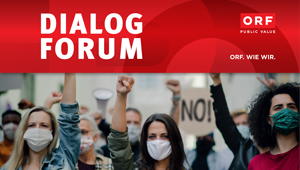 Knapp zwei Jahre Pandemie haben manche aus der Bahn geworfen und viele an Home-Schooling oder Home-Office gewöhnt, an das Alleinsein und die immer wieder verschobene Hoffnung auf ein baldiges Ende der Beschränkungen. Wie ist es um die Jungen post Corona bestellt? Wie blickt eine Generation auf das Weltgeschehen, auf Geschlechterfragen und nicht zuletzt auf sich selbst? Folgt der Isolation ein Aus- und Aufbruch? Kommen neue Visionen,
Knapp zwei Jahre Pandemie haben manche aus der Bahn geworfen und viele an Home-Schooling oder Home-Office gewöhnt, an das Alleinsein und die immer wieder verschobene Hoffnung auf ein baldiges Ende der Beschränkungen. Wie ist es um die Jungen post Corona bestellt? Wie blickt eine Generation auf das Weltgeschehen, auf Geschlechterfragen und nicht zuletzt auf sich selbst? Folgt der Isolation ein Aus- und Aufbruch? Kommen neue Visionen,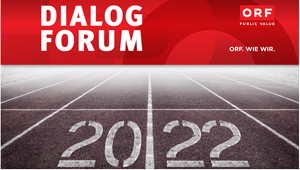
 Die Digitalisierung ist ein Phänomen, das zusehends alle gesellschaftlichen Bereiche durchdringt. Aber: Vielfach ist das Thema männlich dominiert. Mitunter ist das zu bemerken, wenn in ORF-Sendungen nach weiblicher Digital-Expertise gesucht wird. Wie lässt sich das ändern? Wo sind die Fachfrauen in den Bereichen Digitalisierung und Technologie? Was können die Medien, insbesondere öffentlich-rechtliche, tun, um die Sichtbarkeit von Expertinnen zu stärken? Welche Initiativen gibt es?
Die Digitalisierung ist ein Phänomen, das zusehends alle gesellschaftlichen Bereiche durchdringt. Aber: Vielfach ist das Thema männlich dominiert. Mitunter ist das zu bemerken, wenn in ORF-Sendungen nach weiblicher Digital-Expertise gesucht wird. Wie lässt sich das ändern? Wo sind die Fachfrauen in den Bereichen Digitalisierung und Technologie? Was können die Medien, insbesondere öffentlich-rechtliche, tun, um die Sichtbarkeit von Expertinnen zu stärken? Welche Initiativen gibt es?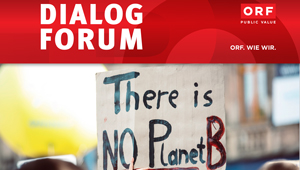 Katastrophen, Krisen und extremes Wetter: Die Meldungen über die Klimakrise sind niederschmetternd.
Katastrophen, Krisen und extremes Wetter: Die Meldungen über die Klimakrise sind niederschmetternd.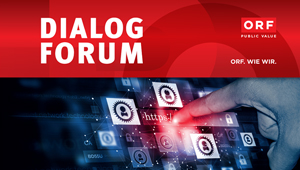 Anlässlich der Präsentation der Public Value Jahresstudie steht der Public Value Tag im Zeichen wissenschaftlicher Erkenntnis zu Medienqualität: Wie kann die digitale Transformation gelingen?
Anlässlich der Präsentation der Public Value Jahresstudie steht der Public Value Tag im Zeichen wissenschaftlicher Erkenntnis zu Medienqualität: Wie kann die digitale Transformation gelingen?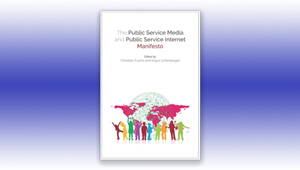
 Eine neue ORF-interne Expertinnen-Datenbank soll helfen, den Frauenanteil in den Medienproduktionen des ORF zu erhöhen. Ziel ist es, ein ausgewogenes Geschlechterverhältnis in der Berichterstattung herzustellen.
Eine neue ORF-interne Expertinnen-Datenbank soll helfen, den Frauenanteil in den Medienproduktionen des ORF zu erhöhen. Ziel ist es, ein ausgewogenes Geschlechterverhältnis in der Berichterstattung herzustellen. 200 Media Experts Publish an Alarming Wake Up Call and Demand a Public Service Internet
200 Media Experts Publish an Alarming Wake Up Call and Demand a Public Service Internet UPDATE vom 01.10.2021:
UPDATE vom 01.10.2021: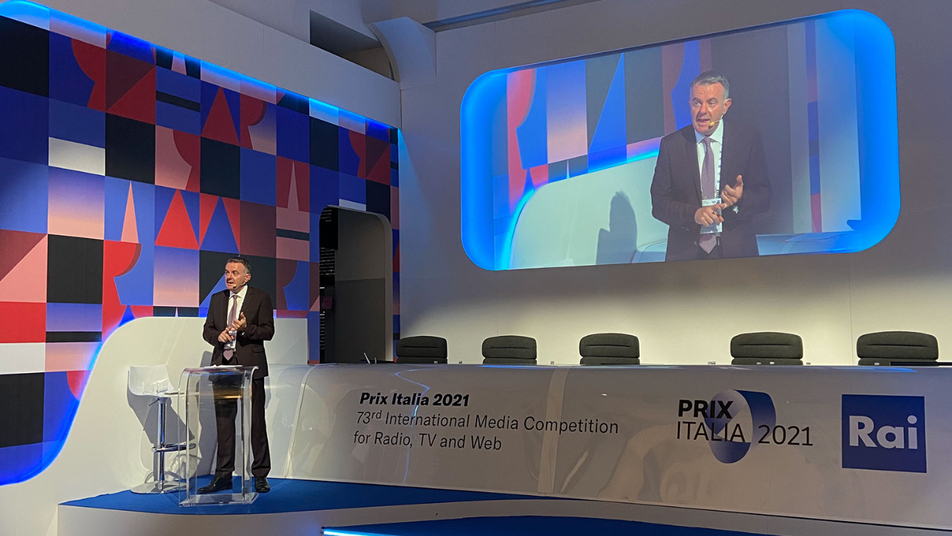 Der EBU-Generaldirektor Noel Curran sprach beim Prix Italia über die ernsthaften Bedrohungen, mit denen der Journalismus heute konfrontiert ist: die Erosion von Vertrauen und Wahrheit durch den digitalen 24/7-Nachrichtenzyklus; die Einschüchterung und das Schweigen von Journalisten; Finanzierungsprobleme, die zu einem "Short Cut"-Journalismus führen; die zunehmende Kontrolle der Global Player über die Bereitstellung aller Inhalte.
Der EBU-Generaldirektor Noel Curran sprach beim Prix Italia über die ernsthaften Bedrohungen, mit denen der Journalismus heute konfrontiert ist: die Erosion von Vertrauen und Wahrheit durch den digitalen 24/7-Nachrichtenzyklus; die Einschüchterung und das Schweigen von Journalisten; Finanzierungsprobleme, die zu einem "Short Cut"-Journalismus führen; die zunehmende Kontrolle der Global Player über die Bereitstellung aller Inhalte. Gemeinsame Programmvorhaben für 2021/22 bei Koproduktionstagung beschlossen
Gemeinsame Programmvorhaben für 2021/22 bei Koproduktionstagung beschlossen Der diesjährige Eurovision Song Contest in Rotterdam erreichte über die 3 Live-Shows 183 Millionen Menschen weltweit und verzeichnete den höchsten durchschnittlichen Zuschaueranteil der letzten zehn Jahre.
Der diesjährige Eurovision Song Contest in Rotterdam erreichte über die 3 Live-Shows 183 Millionen Menschen weltweit und verzeichnete den höchsten durchschnittlichen Zuschaueranteil der letzten zehn Jahre.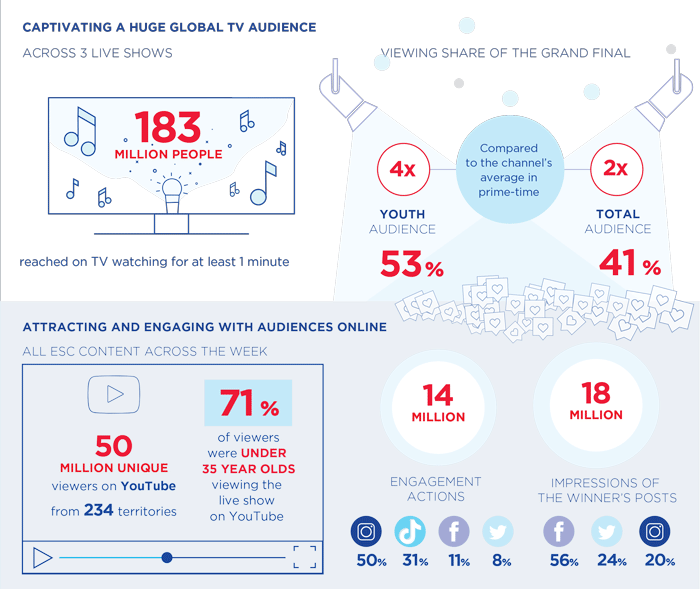
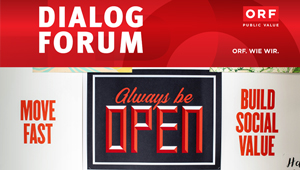 Ansprüche an eine Gesellschaft nach dem Virus
Ansprüche an eine Gesellschaft nach dem Virus